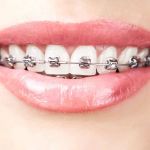
Importance of a Balanced Diet for Healthy Teeth: How Nutrition Impacts Your Oral Health
- 1. The Connection Between Nutrition and Oral Health
- 2. Essential Nutrients for Strong Teeth
- 3. Foods to Include in Your Diet for Healthy Teeth
- 4. Foods to Avoid for Better Dental Health
- 5. Real-Life Example of Diet Impacting Oral Health
- 6. Dental Care Tips for Maintaining Healthy Teeth
- 7. Where to Buy Dental Health Products
When we think about oral health, we often focus on brushing, flossing, and regular dental visits. But did you know that the foods we eat play a significant role in maintaining strong, healthy teeth? A balanced diet not only helps improve your overall well-being but also contributes to the strength of your teeth and gums. The nutrients you get from your food can either fight or fuel the harmful bacteria in your mouth, impacting your dental health directly.
The relationship between nutrition and oral health is undeniable. A poor diet, high in sugary and acidic foods, can increase the risk of tooth decay, gum disease, and other dental problems. On the other hand, a diet rich in vitamins and minerals supports enamel strength, gum health, and can even help fight bad breath.
Certain nutrients are vital for the health of your teeth. These include:
- Calcium: Calcium is essential for strengthening teeth and bones. It helps maintain the mineral content of your enamel, making it more resistant to decay. Dairy products, leafy greens, and fortified plant milks are great sources of calcium.
- Vitamin D: Vitamin D helps your body absorb calcium and phosphorus, which are crucial for tooth enamel health. Sunlight, fatty fish like salmon, and fortified dairy products are great sources of vitamin D.
- Phosphorus: Phosphorus works with calcium to form strong tooth enamel. Foods like eggs, meat, and fish provide ample phosphorus.
- Vitamin C: Vitamin C is important for gum health, as it helps the body produce collagen, which strengthens the tissues in the mouth. Citrus fruits, strawberries, and bell peppers are excellent sources of vitamin C.
- Fluoride: Fluoride strengthens enamel and helps prevent cavities. Many municipal water supplies are fluoridated, and fluoride is also present in most toothpaste brands.
Incorporating these nutrients into your diet can significantly enhance the strength and health of your teeth, helping to prevent issues like cavities and gum disease.
Now that you know which nutrients are essential, it’s important to choose the right foods that provide them. Here are some foods to include in your diet for healthy teeth:
- Dairy Products: Milk, cheese, and yogurt are rich in calcium and phosphorus, making them perfect for maintaining tooth enamel.
- Leafy Greens: Spinach, kale, and other leafy greens are high in calcium and vitamin C, which promote strong teeth and healthy gums.
- Apples and Pears: These fruits are not only nutritious but also help stimulate saliva production, which helps neutralize acids in the mouth and wash away food particles.
- Carrots and Celery: These crunchy vegetables are natural scrubs for your teeth, helping to remove plaque and stimulate saliva production, keeping your mouth clean.
- Nuts and Seeds: Almonds, walnuts, and sesame seeds are great sources of phosphorus and healthy fats, contributing to the overall strength of your teeth and gums.
Incorporating these foods into your daily meals can help you achieve optimal oral health while supporting the strength and longevity of your teeth.
While eating the right foods is essential, avoiding certain foods is equally important for maintaining oral health. Foods high in sugar, acidity, and processed carbs can increase the risk of tooth decay, plaque buildup, and gum disease. Some foods to avoid include:
- Sugary Snacks and Drinks: Candies, sodas, and sugary snacks provide fuel for harmful bacteria in your mouth, leading to plaque buildup and cavities.
- Citrus Fruits: While rich in vitamin C, citrus fruits like oranges and lemons are acidic and can erode tooth enamel if consumed in excess.
- Sticky Foods: Dried fruits, fruit snacks, and sticky candies can cling to your teeth, promoting bacteria growth and plaque buildup.
- Alcohol: Alcoholic beverages can dry out your mouth, reducing saliva production, which is essential for neutralizing acids and washing away food particles.
Limiting the intake of these foods can protect your teeth from unnecessary damage and reduce the risk of dental issues.
Real-life examples help highlight the importance of a balanced diet for healthy teeth. Consider the case of Sarah, a 35-year-old woman who had struggled with gum disease for years. Despite regular brushing and flossing, her gums were often inflamed, and she experienced persistent bleeding. After consulting with her dentist, Sarah learned that her diet was high in processed sugars and lacked essential nutrients like calcium and vitamin C. With a new diet rich in whole foods like leafy greens, dairy, and nuts, Sarah noticed significant improvements in her gum health within a few months. Her gums stopped bleeding, and her overall oral health greatly improved.
This story emphasizes the critical role that diet plays in oral health. By making informed food choices, Sarah was able to reverse some of the damage caused by poor nutrition.
Alongside a balanced diet, there are other essential habits that contribute to maintaining healthy teeth:
- Brush your teeth twice a day with fluoride toothpaste
- Floss daily to remove food particles and plaque from between your teeth
- Visit your dentist regularly for checkups and cleanings
- Drink plenty of water to keep your mouth hydrated and flush away food particles
By incorporating these practices, you can ensure that your teeth remain strong, healthy, and free from disease.
If you’re looking to enhance your dental care routine, consider exploring high-quality oral care products. Visit Dentistry Toothtruth for expert recommendations on the best products for maintaining healthy teeth.







 Eastern Dental4.0 (875 review)
Eastern Dental4.0 (875 review) Santa Margarita Pediatric Dentistry4.0 (156 review)
Santa Margarita Pediatric Dentistry4.0 (156 review) Lino Lakes Family Dentistry5.0 (110 review)
Lino Lakes Family Dentistry5.0 (110 review) Aava Dental Mission Viejo4.0 (170 review)
Aava Dental Mission Viejo4.0 (170 review) Summer Smile Dental South Gate4.0 (461 review)
Summer Smile Dental South Gate4.0 (461 review) Capital Dental Care4.0 (20 review)
Capital Dental Care4.0 (20 review) The Importance of Oral Health Education During Pregnancy for a Healthy Pregnancy
The Importance of Oral Health Education During Pregnancy for a Healthy Pregnancy Best Tips for Brushing Your Teeth Properly for Healthy Gums: Essential Techniques for Oral Health
Best Tips for Brushing Your Teeth Properly for Healthy Gums: Essential Techniques for Oral Health Why Skipping Dental Checkups Can Lead to Bigger Oral Health Problems
Why Skipping Dental Checkups Can Lead to Bigger Oral Health Problems Advantages of Porcelain Dental Restorations
Advantages of Porcelain Dental Restorations How Can Diabetes Cause Tooth and Gum Problems? Preventing and Managing Oral Health Issues
How Can Diabetes Cause Tooth and Gum Problems? Preventing and Managing Oral Health Issues Healthy Habits for Promoting Good Oral Health and Hygiene: Tips for a Healthy Smile
Healthy Habits for Promoting Good Oral Health and Hygiene: Tips for a Healthy Smile